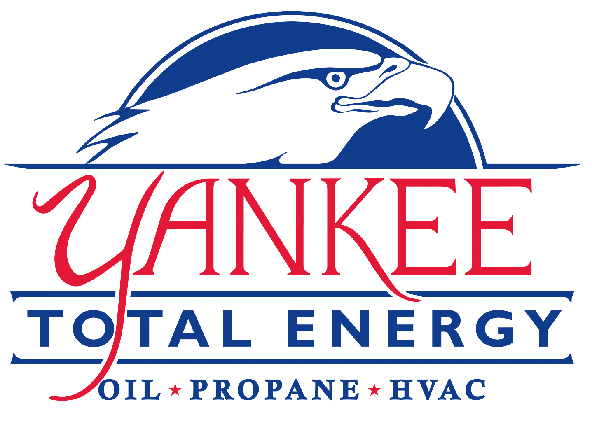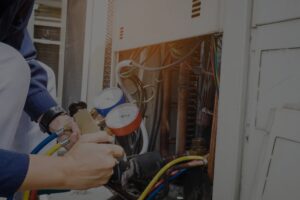Making the Right Call for Your Comfort System
No homeowner wants to face the question: Should I repair or replace my HVAC system? But over time, even the best systems wear out.
Whether it’s your furnace acting up in the middle of a Connecticut winter or your air conditioner failing during a heatwave, it’s important to know the signs that signal it’s time for an upgrade versus a quick repair.
This guide will walk you through everything you need to consider—from costs to efficiency to lifespan—so you can make the best decision for your home.
When a Repair Makes Sense
Here are signs your HVAC issue is likely fixable—and worth fixing:
-
A single, isolated issue (like a malfunctioning thermostat or capacitor)
-
Your system is less than 10 years old
-
Your utility bills are still reasonable
-
You haven’t needed frequent repairs in recent years
-
The repair estimate is relatively low
💡 Tip: Quick repairs often make sense for newer systems that are still under warranty.
How Long Do HVAC Systems Usually Last?
Knowing the typical lifespan of your HVAC components can help you weigh your options:
| HVAC Component | Average Lifespan |
|---|---|
| Central Air System | 10–15 years |
| Furnace | 15–20 years |
| Heat Pump | 10–15 years |
| Ductwork | 20–25 years |
| Thermostat | 10 years |
👉 If your system is nearing the end of its expected life and experiencing issues, replacement might be the smarter long-term move.
When It’s Time to Replace Your HVAC System
Sometimes, putting money into a failing system just doesn’t pay off. Consider a replacement if:
-
Your HVAC system is 12–20+ years old
-
You’re facing frequent or expensive repairs
-
You notice uneven temperatures throughout your home
-
Your energy bills have gone up despite steady usage
-
Your system still runs on R-22 refrigerant (which is discontinued)
-
Your unit can’t keep up with demand during extreme temps
Cost Comparison: Repair vs. Replacement
It’s easy to see why people lean toward repairs—they often cost less upfront. But replacement may save more in the long run.
General rule: If your repair costs exceed 50% of the price of a new system and the unit is over 10 years old, replacement is usually the smarter investment.
Energy Efficiency & Long-Term Savings
Today’s HVAC units are far more efficient than those made a decade ago. If your current system is older, upgrading can significantly cut your energy usage and utility bills.
Key performance indicators to look for:
-
SEER2 rating (cooling efficiency) – The higher, the better (14+ is ideal in Connecticut)
-
AFUE rating (heating efficiency) – Aim for 90% or more
-
ENERGY STAR® rating – Denotes high-efficiency models
📉 Lower monthly bills + fewer service calls = faster return on investment.
Newer Systems Offer Smart Comfort
Modern HVAC systems offer:
-
Smart thermostat compatibility for mobile control
-
Zoning systems that let you adjust temps by room or floor
-
Variable-speed motors for quieter and more efficient operation
-
Better humidity control and indoor air quality
These features enhance comfort and convenience, especially during New England’s temperature swings.
Environmental Considerations
Older HVAC units are not just inefficient—they’re also harmful to the environment. Some use outdated refrigerants that contribute to ozone depletion, while newer systems are built with eco-friendly refrigerants and more sustainable designs.
How to Know It’s Time to Replace
Still unsure? Here are clear signs replacement should be on the table:
✅ HVAC unit is over 15 years old
✅ Frequent, costly repairs in the last 2 years
✅ High energy bills
✅ Poor airflow or hot/cold spots
✅ Loud, unusual noises
✅ Unit uses R-22 or other obsolete refrigerants
✅ You’re planning to stay in your home long term
Still Not Sure? Consider Your Future Plans
Ask yourself:
-
Do I plan to move soon? → Go with repair.
-
Is this my forever home? → Invest in an upgrade.
-
Will a new HVAC system increase home value? → Absolutely.
If you’re selling in the next year or two, a simple repair might keep things running until then. But if you’re planning to stay and want reliable comfort, replacement is often the better call.
Rebates, Incentives & Financing in CT
Upfront cost is a big reason homeowners hesitate to replace—but it doesn’t have to be.
Yankee Total Energy helps Connecticut residents access:
-
💵 Energy efficiency rebates
-
💳 Flexible financing options
-
🏷️ Manufacturer specials and warranty upgrades
-
✅ Low-interest loans through utility partners
We’ll walk you through every savings opportunity available.
What to Expect When Replacing Your HVAC System
A smooth HVAC replacement includes:
-
On-site system assessment
-
Custom recommendations based on your home’s size and layout
-
Efficient installation with minimal disruption
-
Post-installation walkthrough and setup of smart controls
-
Warranty registration and maintenance tips
We make it stress-free and seamless from start to finish.
Why Homeowners Trust Yankee Total Energy
With years of local experience and a reputation for honest, expert service, Yankee Total Energy is the go-to HVAC provider for homeowners across Connecticut.
We provide:
-
Friendly, licensed technicians
-
Transparent pricing and no upsells
-
High-efficiency system installations
-
24/7 emergency repair availability
-
Local, family-owned customer care
Final Thoughts: Repair or Replace? Let Us Help.
Every HVAC situation is unique. But the choice between repairing or replacing doesn’t have to be overwhelming.
If your system is relatively new and the fix is minor, repair is likely the right move.
If your unit is aging, inefficient, or causing frequent headaches, replacement will save you time, money, and frustration.
Book a Free System Evaluation Today
📞 Call [860-423-9111] or
📩 Schedule online at yankeetotalenergy.com/contact to get started.
Let us help you stay warm in the winter, cool in the summer, and efficient all year long.







